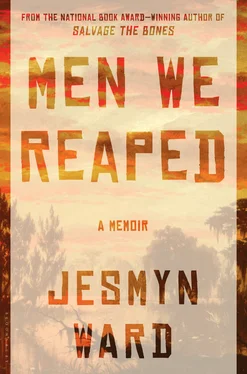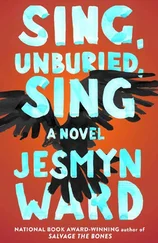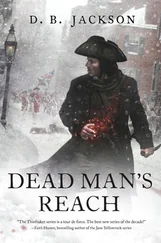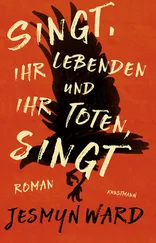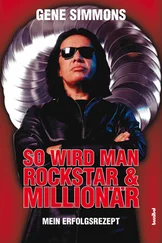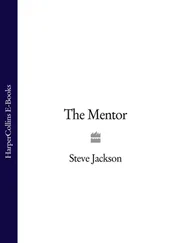“I’m first and you’re second.” I put a calming hand on Nerissa, and she nodded.
“You’re third.”
“Okay,” Aldon replied.
“And you’re fourth,” I told Josh.
The first car that passed the house from the direction of Du Pont, perhaps heading home from shift work, was dark blue, fairly new, and boxy.
“That’s my car!” I yelled, and the others cheered.
A white two-door with a long, pointy hood zipped by.
“That’s your car,” I told Nerissa. We cheered dutifully. It was an okay draw.
We heard the next car before we saw it: a loud, syncopated clunking weighted by an ornery engine.
“Oooooohhhhh,” Josh crowed.
The car, gray and brown in patches, puttered across the street before us. The driver, as if he knew he drove a car he should be ashamed of, did not wave or blow his horn as a neighbor might, but instead looked straight ahead.
“That’s your car!” I pointed at Aldon, laughing.
“Hunk of junk!” Josh screamed.
“Why I had to get the junky car?” Aldon said.
We all laughed. Aldon stood and waved his arms at the offending car as it chugged down the street, as if he imagined he could shoo it away as we did raccoons sniffing around the garbage or possums creeping with their pink feet through the fetid swamp of the backyard to disappear in the endless woods.
“Go! Go!” Aldon said, and we laughed harder. Nerissa clapped.
Aldon sat.
“Now it’s Josh’s turn,” I said, and we faced forward on the swing, packed tightly one next to another, and watched the road. We listened intently for a whoosh, for a loud bang, for a flash of color, for anything that would signal our future.
Charles Joseph Martin. Born: May 5, 1983. Died: January 5, 2004
The first time C. J., one of my many cousins, moves into sharp relief is when he was around six and I was around twelve. He was fair and had a face full of freckles. As a toddler, he’d been blond like Josh, but as he grew older his hair darkened, grew long and curly, and his mother braided it to his head or cut it low on the top and left a long lock of it to grow down his back in a rattail. He was small and lean, angled all over with muscle. His face was shaped like a triangle, and the only things that were dark about him were his eyes, which were so deep in color they were a surprise.
At family reunions for my father’s side, C. J. would be there, small and gold and wiry, his rattail touching him in the middle of his spine. We children ate hot dogs with ketchup and mustard, crunched potato chips, drank cold sodas in big gulps so that the fizzy acid burned our throats, and chased each other in packs around the yard.
“Flip,” someone would say.
“Okay,” C. J. said.
We lined up in a human corridor so he could showcase his skills. He jumped a couple of times and then ran headlong down the strip of grass we’d left. Near the end of the line he punched into a round-off, then a back handspring, and then another handspring, his rattail streaming out behind him. He was a human Slinky. We cheered. I felt hot and weak. Again and again he flipped down our aisle, hurling himself through the air, which was thick with humidity, and each time he cut it cleanly in two. When he landed on his feet, he bounced. When he grew tired, he’d run off to get a soda. The group would dissipate. I wandered off by myself, feeling dissatisfied with how earthbound my body was, how bound by the heat, until I wandered into a playhouse, a square of plywood and two-by-fours. Lying on the floor, sand scratching my back, I watched the other kids. They ran the yard in pairs, yanking at one another in the waning day, fighting for the last cold drinks. I watched C. J. dart between them, trip them, take what he wanted, and run away so quickly they couldn’t catch him.
For a long time I did not see C. J. I went away to college when he was twelve, and when I came back, there he was: taller, my height at least, but short for a man. He was shirtless. The little-boy body he’d had was now larger, but he was still wiry, and his muscles were like rocks under his skin. There was no fat on him. He had grown all of his hair long and braided it back to his head, so his face stood out in hard relief. He was pale, freckled, and still able to do things with his body I could not imagine possible.
At this point, most of us lived with our parents, and while some of us had parents who didn’t care if we had people over, others had parents who did (like my mother). And even most of the parents who didn’t mind company minded if company came over too often, if there were lots of cars parked in the yard, because that attracted something we called heat : police attention. While that might not matter in neighborhoods that were mostly White and working-class, in our Black working-class community, it mattered. So kids from their preteens to their twenties spent most of their time down at the park, a former field that sat between the priests’ rectory and the graveyard. The county hadn’t invested much into its construction: they poured a small basketball court, then put up two swing sets, a wooden jungle gym, and two sets of small wooden bleachers that quickly rotted in the humidity and heat. My mother called the park “pitiful.” It made her angry that our county park was markedly different from those in other towns in neighborhoods across the coast that were White or more moneyed. But we didn’t care; we avoided the rotten spots on the bleachers and watched kids closely when they played on the jungle gym, and spent hours there, studiously ignoring the county police as they circled us like vultures, suspecting us of using and selling drugs wherever we gathered.
The day I took pictures of C. J. at the park, he wasn’t in the game. We sat on the benches, watching some boys from the neighborhood play basketball on one of the four hoops. Some of them were shirtless, sweat-glazed and shiny, others not, the cotton pasted to their chests before pulling loose at the neck and stomach. That day C. J. sat at the foot of the bleachers, smoking. Charine waited near him, a basketball in hand. She was around fourteen then. Every few minutes he’d walk up to Charine, and she’d throw the ball to him, and he would toss it in the air toward the hoop closest to the bleachers. Charine took a jump shot and missed it. The day was hot, heavy, and overcast, the rain perpetually five minutes away. The wind moved, and for a second it was cool. A tall Spanish oak tree shaded the bleachers where I sat beneath its green canopy, slapping mosquitoes dead. The road glittered in the distance.
Cars had pulled onto the grass near the basketball court, parked next to the concrete benches. Typically, boys who did this opened their doors and trunks and played music on loud audio systems.
Charine shot the ball, attempting jumpers and fade-away shots at the hoop closest to the fence near the Catholic priests’ house. C. J. snatched the rebounds and ran for another basket, dribbling the ball hard and fast, picking up speed before throwing his body upward and through the air. The ball slammed against the backboard and then ricocheted out of his hand and flew back into the game at the opposite end of the court. C. J. flew so high that he dangled from the rim by the crook of his elbow, giggling madly, swinging slowly from side to side.
“Jesus,” I said. I’d never seen someone so short jump so high. I cradled my old manual Nikon camera, hefted its solid weight, and yelled, “Do it again, C. J.!”
He dropped from the goal and bounced. Charine passed him the ball. He sprinted to the other end of the court and ran at his goal again, threw himself up in the air. He flew. Again the ball smacked into the wrong spot on the backboard, rebounded off, and again Charine caught it and threw it back to C. J. I walked down the bleachers, stood closer to the hoop, and tried to snap pictures of him, of the miracle of him flying through the air. But he was too fast and my camera was too old. I could hear the shutter snap open, lick against metal, and then snap shut again. Too slow. Later, when I developed that film back at college, C. J. would look all wrong in the air: awkwardly bent, blurry, all his terrific grace lost in the frozen moment captured by the camera.
Читать дальше
